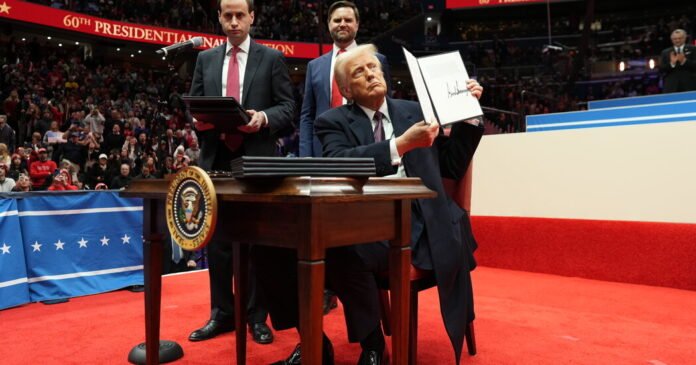About 22 Democratic-led states and civil rights groups filed several lawsuits challenging the U.S. President Donald Trump’s bid to roll back birthright citizenship on Tuesday in an early bid by his opponents to block his agenda in court.
After his inauguration on Monday, Trump, a Republican, ordered U.S. agencies to refuse to recognise the citizenship of children born in the U.S. if neither their mother nor father is a U.S. citizen or legal permanent resident.
Twenty-two Democratic-led states along with the District of Columbia and the city of San Francisco filed a pair of lawsuits in federal courts in Boston and Seattle asserting Trump had violated the U.S. Constitution.
Two similar cases were filed by the American Civil Liberties Union, immigrant organisations, and an expectant mother in the hours after Trump signed the executive order, kicking off the first major court fight of his administration.
The lawsuits take aim at a central piece of Trump’s sweeping immigration crackdown.
If allowed to stand, Trump’s order would for the first time deny more than 150,000 children born annually in the United States the right to citizenship, said the office of Massachusetts Attorney General Andrea Joy Campbell.
“President Trump does not have the authority to take away constitutional rights,” she said in a statement.
Losing out on citizenship would prevent those individuals from having access to federal programs like Medicaid health insurance and, when they become older, from working lawfully or voting, the states say.
“Today’s immediate lawsuit sends a clear message to the Trump administration that we will stand up for our residents and their basic constitutional rights,” New Jersey Attorney General Matthew Platkin said in a statement.
The White House did not respond to requests for comment.
More lawsuits by Democratic-led states and advocacy groups challenging other aspects of Trump’s agenda are expected, with cases already on file challenging the Elon Musk-led Department of Government Efficiency and an order Trump signed weakening job protections for civil servants.
![]()










